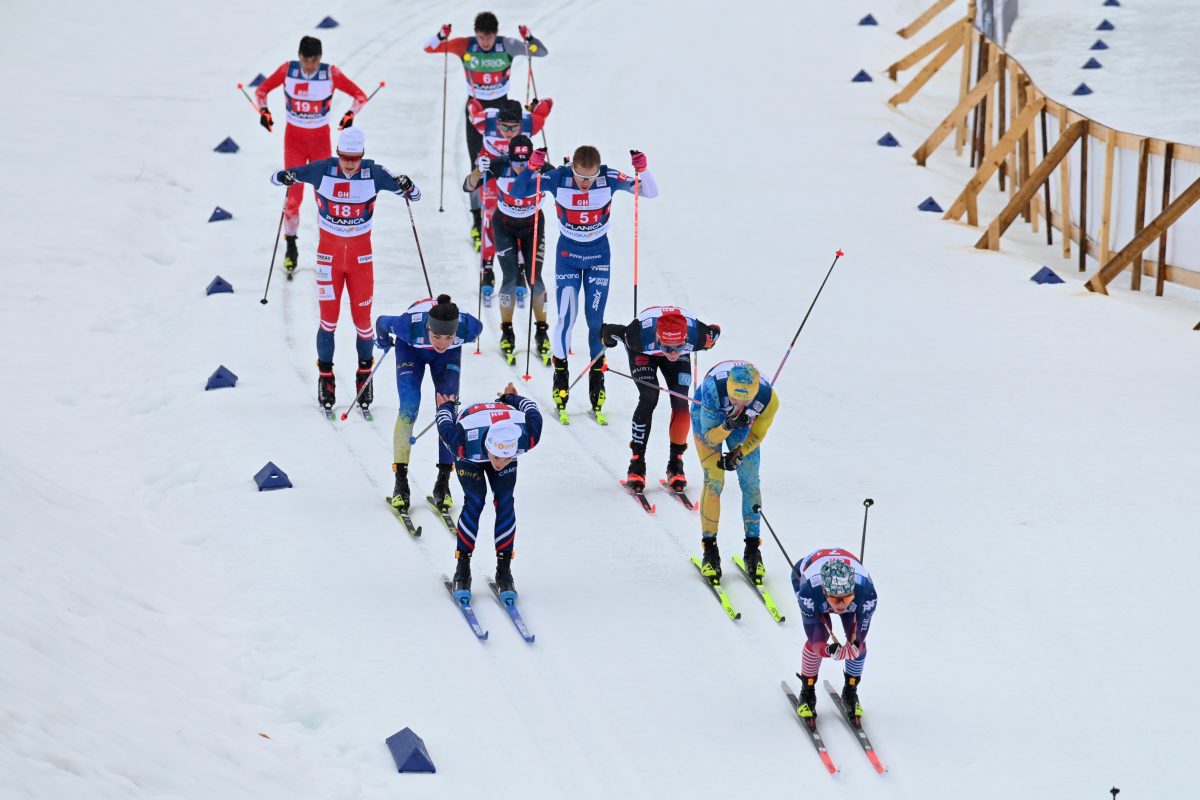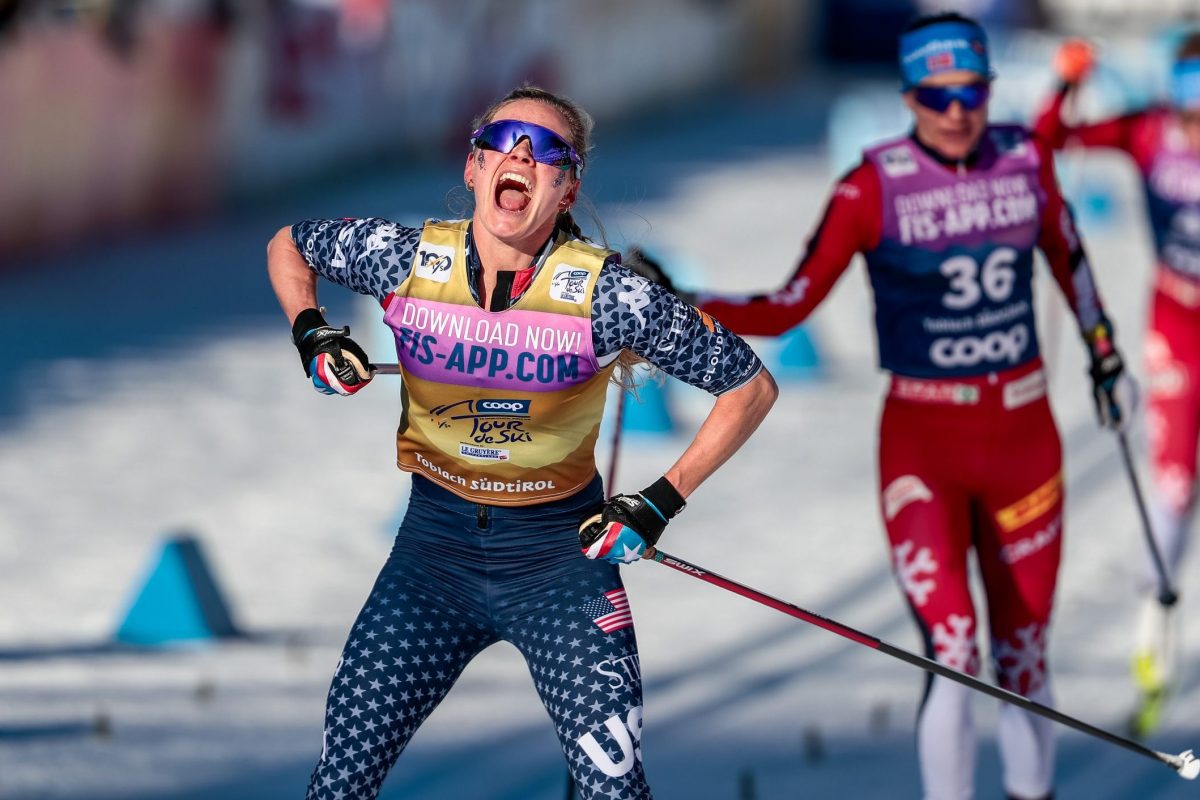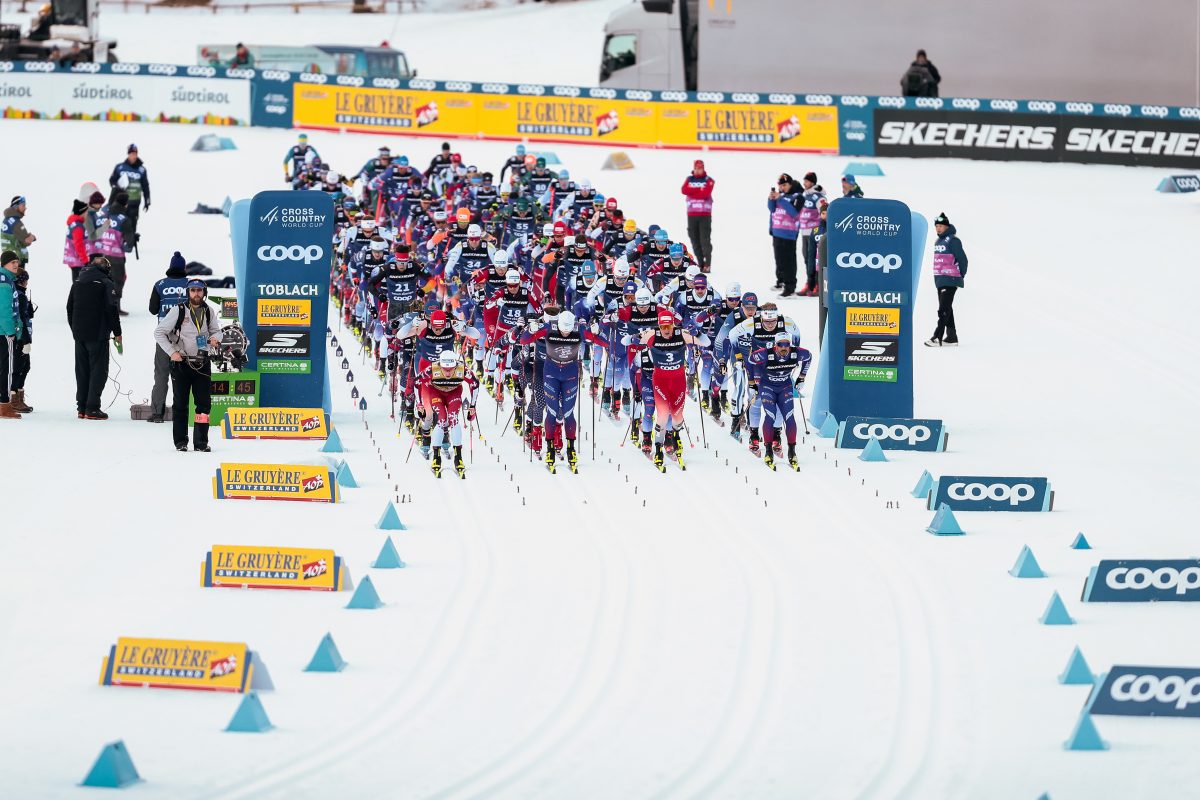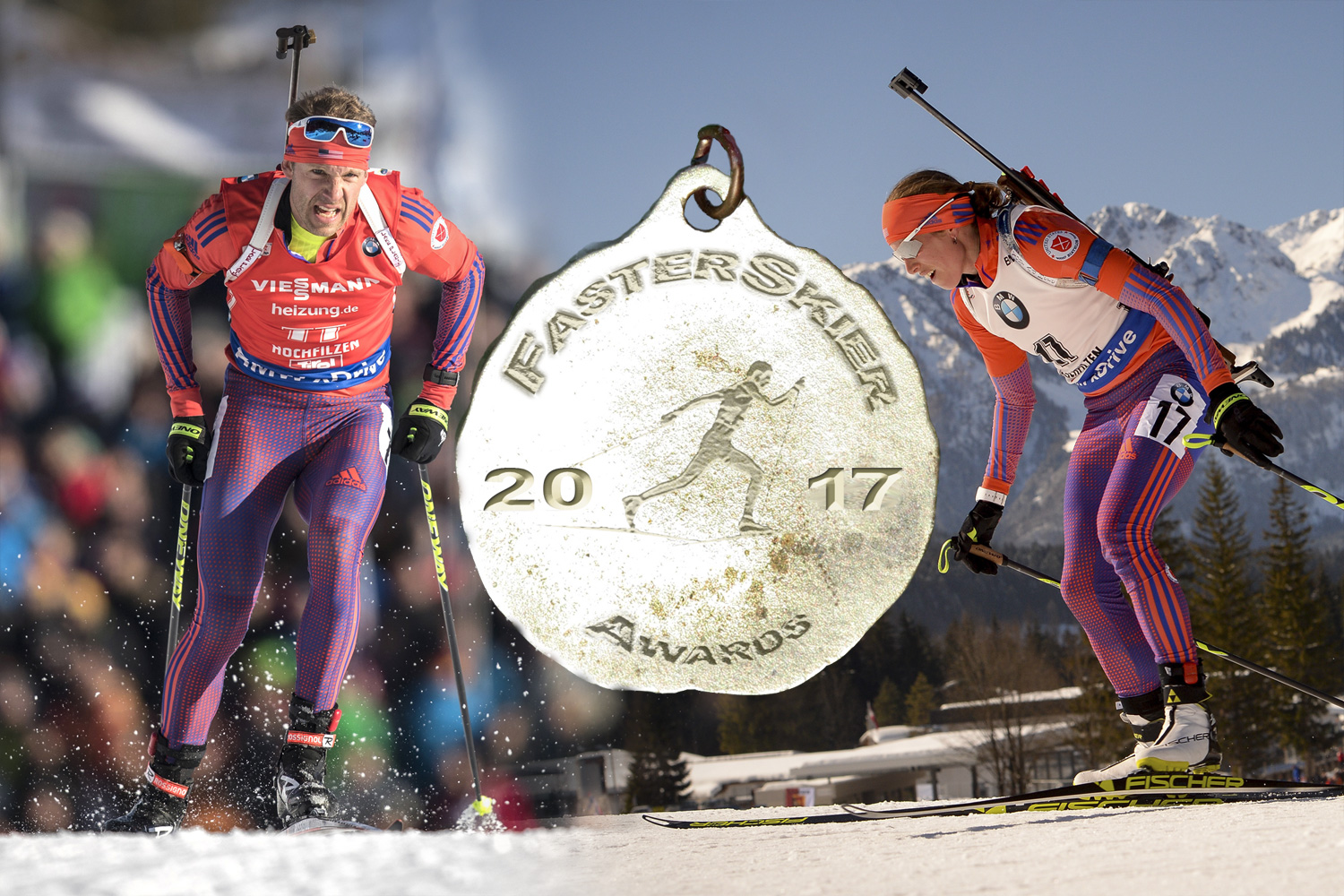
With the 2016/2017 season officially in the rearview, FasterSkier is excited to unveil its annual award winners for this past winter. Votes stem from the FS staff, scattered across the U.S., Canada, and Europe, and while not scientific, they are intended to reflect a broader sense of the season in review. This set of honors goes to outstanding female and male North American biathletes on the IBU World Cup circuit.
Previous categories: Junior Skiers of the Year | Collegiate Skiers of the Year | Canadian Continental Skiers of the Year | U.S. Continental Skiers of the Year | Nordic Combined Athlete of the Year
Susan Dunklee and Lowell Bailey, to U.S. national team biathletes, each had historic seasons in their own right, marked by both consistently strong performances and historic peaks. Bailey won the first World Championships gold medal for an American biathlete – male or female – and Dunklee won a silver medal as the first U.S. woman in an individual-start race in those same championships.
Then, like a tag team of comic book superheroes banding together, it seemed only fitting that they combined their strengths to also achieve the first World Cup podium in a team event for U.S. Biathlon in ages, putting an exclamation mark on their oustanding year.
Susan Dunklee, U.S. Biathlon
Dunklee, who already won FasterSkier’s female biathlete of the year award in 2015/2016, further improved on her strong performances from the prior winter with an even more remarkable season, thanks to increased accuracy and noticeably faster shooting times on the range after cleaning her targets rather deliberately earlier in her career.
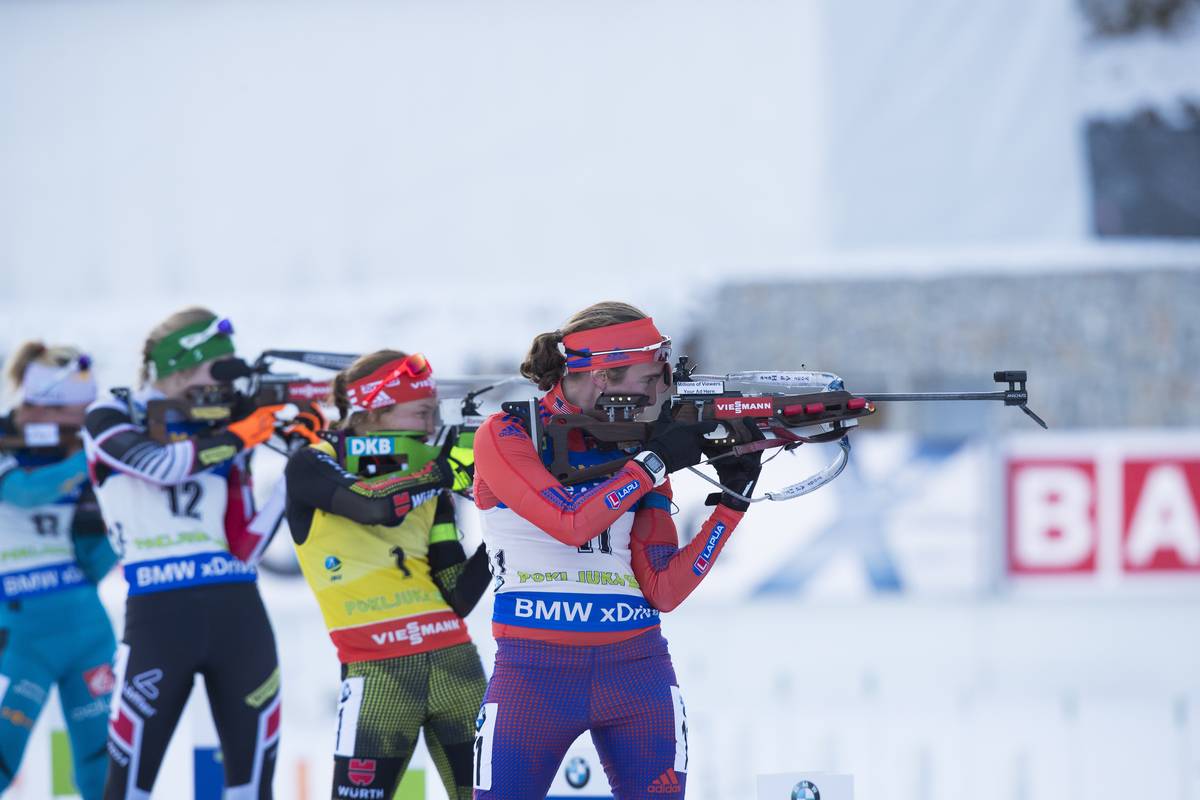
In the first half of the season she already achieved a third place in the sprint in Nove Mesto, Czech Republic, as well as two more top-five finishes.
Then her powerful skiing and a clean 20-for-20 shooting performance – the first of her career in a four-stage race at the World Cup level – propelled her to a historic podium finish in the women’s 12.5-kilomter mass start at the World Championships in Hochfilzen, Austria.
“I thought, I have to get the hell out of here!” Dunklee described her feelings after hitting the last target in that race in an interview with FasterSkier back then. And she did, leaving the range first and claiming the silver medal and her first podium at World Championships, after only being passed on the final loop by Germany’s Laura Dahlmeier.
“Repetition and discipline and training will get you to be able to shoot fast in the race,” Dunklee reflected. “And you have to get to the point where you trust that speed is better than shooting slow. That takes a long time … [to] feel comfortable with that speedy rhythm. It has worked some days in races this year, and then other days it has totally fallen apart. But today it worked.”
Dunklee followed up the highlight of her season with several more strong and consistent performances, three times just missing another World Cup podium in fifth place. And then she crowned her year with another success, placing second together with teammate Lowell Bailey in the single mixed relay at the World Cup in Kontiolahti, Finland, only behind a team from Austria.
“I have dreamed for a long time being able to run into the finishing pen with a bib on and a rifle, and greet my teammates as they come in,” Dunklee described her new experience of winning as part of a team, in a phone interview after that race. “It’s so cool to finally do that. It’s definitely a dream come true.”
Fittingly, Dunklee was also the only North American athlete qualified for the elite top-30 field in the final World Cup mass start of the season in Oslo, Norway. Despite struggling a bit with her shooting accuracy in that last World Cup weekend, she managed to overall claim the tenth position in the women’s Total Score standings, another highlight to end her best season to date.
“This is the sort of history-making team that every athlete dreams of being part of during their lifetime,” Dunklee reflected on her season after the final race in an email. “We have staff who have worked for decades believing this level is possible. Now the door has been opened. I don’t think they will have to wait decades for the next relay medals or World Championships podiums.”
Lowell Bailey, US Biathlon
“Well, glad I didn’t stop,” Lowell Bailey told broadcaster ARD following his historic gold medal in the men’s individual race at World Championships, later reiterating that feeling in the press conference.
“I’m so thankful for the people who came to me and allowed me to continue my career. The first one to think of is my wife Erika who supported me in my decision. We had our daughter Ophelia this summer, and of course this makes things much more interesting as a family. We had to be creative in our training this year, but it all worked out. So thankful for them, and grateful for everyone who has helped me.“

In retrospect, Bailey had definitely made the right decision to continue racing. Leading into the 2017 season, talk about his imminent retirement from biathlon after a long and successful career and his potential future as a “bison farmer” on the ranch of his father-in-law had become a bit of a running gag among some TV announcers and his fellow competitors.
Bailey started out the winter with consistently good yet not outstanding results, with a ninth place in the pursuit in Nove Mesto his best result before the New Year’s holiday break, usually finishing between positions ten and twenty due to his slightly slower ski speed than the strongest athletes in the field.
Following the break Bailey’s form improved leading up to the planned peak at World Championships in Hochfilzen, and he shot remarkably well during the second half of the season when he focused on some foundational principles of biathlon.
“As you get to the competition season, you boil your shooting cues down to a few key principles,” Bailey explained in an interview with FasterSkier after his winning performance. “For me those are having a good trigger squeeze and follow-through. So it’s like two things. Trigger squeeze. Follow-through. And by the way, when you got to your first biathlon camp, those are two of the three things they teach you. But when you are in that situation, you are fighting for a World Championship medal, you have to keep things simple because that is all your brain is capable of.”
With a clean 20-for-20 shooting performance in the men’s 20-kilometer individual race at the World Championships, Bailey held a small lead going out on the final lap over Czech Republic’s Ondrej Moravec, and what followed was truly one of the most exciting finishes of the season.
“Fortunately I had great skis, and I had a U.S. staff member seemingly every hundred meters along that track,” Bailey told FasterSkier after the race. “But every hundred meters it was a sprint. Every hundred meters was ‘go as hard as you can for this hundred meters, and then when you get to the end of that hundred meters, go as hard as you can and just keep doing that.’ I thought the finish line was never going to come. I was just like, I don’t know how much longer I can do this, because the finish line is just not showing up.”
When the line finally did show up, Bailey was 3.3 seconds ahead and fell elated into the arms of U.S. Biathlon Association (USBA) Chief of Sport Bernd Eisenbichler awaiting him, emotionally celebrating the first gold medal not just of Bailey’s career but for the whole U.S. Biathlon program.
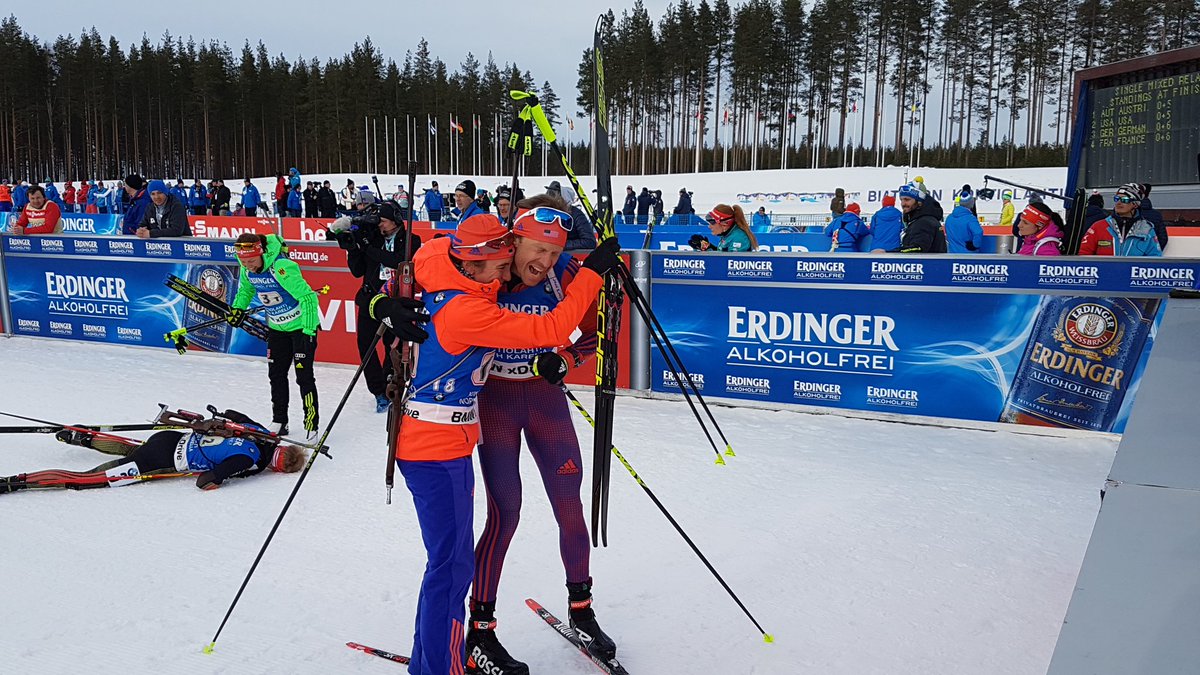
“When I think about when I first met Lowell, he was probably 13 years old, in Lake Placid, and just this good young skier who put his heart into this and worked for this every day, for almost 20 years now,” USBA President Max Cobb told FasterSkier following Bailey’s gold medal. “I think it is a total validation of Lowell’s career.”
As a sign of the respect Bailey commands among his peers, not just his own team but even his competitors seemed happy about the success, drawing high praise from silver medalist Moravec who so narrowly had lost out on gold, bronze medalist and World Cup dominator Martin Fourcade of France, and Germany’s Erik Lesser who had just missed the podium in fourth place.
Bailey followed up on his medal with a second place in the sprint at the following World Cup in PyeongChang, South Korea, at the site of the upcoming 2018 Olympic Winter Games.
“Sometimes you have these waves as an athlete, sometimes you can have also the opposite,” Bailey said in the press conference at PyeongChang. “I have been on this path since World Championships. I feel good physically and mentally, and confident on the shooting range and on the tracks.”
Then he recorded another historic second place in Kontiolahti in the single mixed relay together with his teammate Dunklee.
“It was my first single mixed relay and Susan’s as well, and we were totally psyched,” Bailey told FasterSkier after their shared podium. “This was the first time that you could hug your teammate in the finish zone… It’s a great moment to see both programs, both the men’s and the women’s teams, have a joint success like this.”
Bailey finished the season in eighth place overall in the men’s World Cup Total Score standings, both a career-best for him and a historic best for a US biathlete, all the more impressive because he skipped the entire week of races in Oberhof, Germany, for a longer holiday and training break.
“This is, by far, the best season of my life,” Bailey wrote in an email reflecting on his season after the last mass start of the year, where like Dunklee he had been the only qualified North American starter. “At 35 years old, I can say that I’ve waited a long time for this season.”

